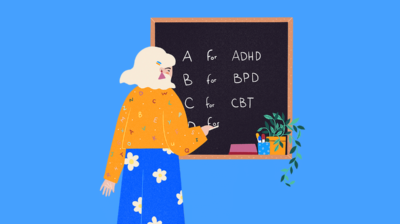How my friends helped me when I was self-harming
Grainne shares her experience with self harm and talks about some ways her friends helped her.

We all have a security blanket; something to keep us safe when everything goes wrong. For some people, their blanket is music, while others have the gym. There’s writing and gaming, making art and playing sports. But what happens when things get too much and a person turns to something else?
Lots of people in Ireland, and throughout the world, use self-harm as a way to cope with very difficult situations in their lives. It affects children, adults and teenagers of all genders.
What is self-harm?
Self-harm is something that is being spoken about a lot more in recent years, but what exactly is it, and why does it happen?
Self-harm is any action that a person does to deliberately hurt themselves to relieve emotional or mental pain. For me I began self-harming when my eating disorder was getting out of control. At the time, I felt like I was being tortured by my mind, and the only way to stop it was by hurting myself.
There isn’t just one type of self-harm; it can present itself in many different ways. Most people would be able to recognise some of the ways a person was self-harming, but unfortunately, many other forms go unnoticed.
Someone I know engages in self-harm. What do I do?
Self-harm exists because the person is going through a really difficult situation in life, and they need a way to cope with it. There isn’t just one reason for someone to begin self-harming, just like there isn’t only one way that a person may self-harm. We all experience life differently, so it’s important to remember each person’s pain is valid and that it should be acknowledged.
If you know that someone close to you is self-harming, there are a number of ways that you can help. These are a few things that I found beneficial when I was struggling;
Things I found helpful:
Be there for them
Let the person know that you’ve noticed they’re having a tough time, and that you’re there for them. For me, knowing that someone recognised that I was not myself made me realise that I wasn’t completely alone in the world. Self-harm is isolating, so something as simple as knowing that you have people looking out for you can make all the difference.
Be gentle
It can be hard for someone who engages in self-harm to open up about what’s going on, so please don’t be discouraged if they don’t want to talk about it, and don’t be pushy about them having to talk. The first time someone said that they knew what was going on, I wanted to retreat into a corner and pretend that none of it was happening. I was embarrassed and ashamed, and didn’t want anyone to know my business. Now, I am glad that I was encouraged to talk about it, but at the time, it was a difficult and scary thing.
Create positive experiences
If you can, offer to spend time with the person doing something that they enjoy, or used to enjoy before the self-harm started. When I was self-harming, it was during a time in my life that was shadowed by an eating disorder and depression, so I found it hard to enjoy things, but that didn’t mean that I shouldn’t try to do them anyway. Going to the cinema still acted as a distraction from the thoughts, and creating art pieces did the same. Distraction from those thoughts was vital, whether I fully enjoyed the experience or not.
A text can make a difference
If you know that the self-harm happens at a particular time in the day, spend time with them then, if you can. If not, something as simple as a phone call or message can help. I found nighttime particularly hard, and that was when I self-harmed the most. I used an online support network of friends to talk me through those tough times. They may not have been there with me in person, but their help and support had a positive effect on me.
Find soothing things for the difficult times
Help the person make a self-soothing box; fill it with things like stress balls, a journal, incense, hot chocolate, their favourite music or video games, distraction colouring books, anything you can think of that may comfort them when they are in emotional pain. I made a self-soothing box during one of my stays in hospital, and was also gifted items for it by friends. I kept that box by my bed so that when I needed it, it was nearby. I wrote a lot, drew a lot, and drank even more hot chocolate than should be physically possible – but it all helped, because doing those things soothed me when I was struggling.
Acknowledge progress
If the person has self-harmed again, please don’t give out! They are struggling at the moment, and having someone give out can add to that; instead, congratulate them for every day that they didn’t self-harm. When I was already feeling bad about myself, having someone give out about my self-harm just made it worse. Positive reinforcement for the things I was doing right really did help.
Take the first step towards recovery together
If they want to go to see a doctor or therapist and are afraid to go, offer to go to the appointment with them for moral support. I was accompanied to my very first doctor’s appointment by my boyfriend at the time, and to be honest, I wouldn’t have gone if he hadn’t gone with me. I was terrified of doctors and psychologists, and hated the idea that I needed to get help, but now I am thankful that he helped me take that first step towards recovery.
Changing the security blanket
Self-harm is like a security blanket for people like me, and taking away that security blanket can be terrifying. Rather than take it away and leave us exposed, add new security blankets through talking, spending time doing things we love, and giving us a support network that we can rely on. Eventually, we won’t need the self-harm security blanket anymore, because everything else knitted together will be able to help us cope.
Self-harm doesn’t have to last forever. If someone you know is struggling, reach out to them. One simple action may mean more to a person than you’d ever know.
Feeling overwhelmed and want to talk to someone?
- Get anonymous support 24/7 with our text message support service
- Connect with a trained volunteer who will listen to you, and help you to move forward feeling better
- Whatsapp us now or free-text SPUNOUT to 50808 to begin.
- Find out more about our text message support service
If you are a customer of the 48 or An Post network or cannot get through using the ‘50808’ short code please text HELLO to 086 1800 280 (standard message rates may apply). Some smaller networks do not support short codes like ‘50808’.






